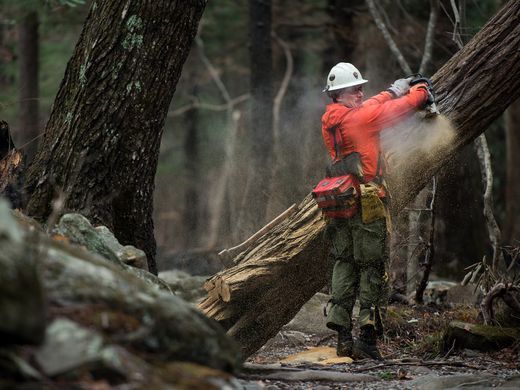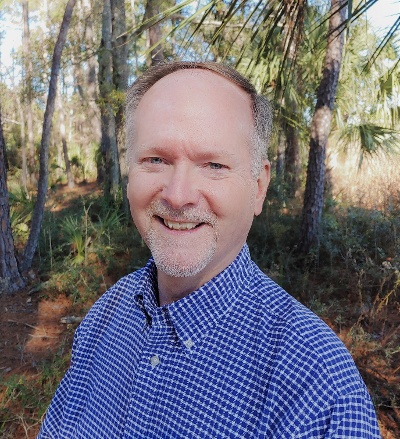
Photo credit: Andrew Nelles / The Tennessean
Spend a few minutes reading about the effects of November’s wildfires in Sevier County, Tennessee and you’ll quickly realize there's far more to the damage than destroyed buildings. Even after food, water and shelter are distributed, wide-spread wildfires lead to personal, social and economic challenges that outlast the flames. These include homelessness, bankruptcies, unemployment and traumatized survivors left with the little they grabbed as they fled.
Organizations like the Red Cross, the Federal Emergency Management Agency (FEMA), the Tennessee Emergency Management Agency (TEMA) and the local Rotary work tirelessly to address immediate victim needs. However, as time passes, efforts shift from urgent relief services to long-term recovery, which could take months or years. As time marches on, it’s easy to be overwhelmed by various resources and relief programs. Is FEMA money still available? What about state funds? Any private organizations willing to help?
To help you keep track, we’re highlighting a selection of available resources and programs. We also encourage you to check the following sites regularly:
- MountainTough.org (the official website for the Smoky Mountain area recovery efforts)
- Tennessee’s Sevier County Recovery website
- Sevier County’s website
You can also sign up for text alerts from the Mountain Tough Recovery Team or call 2-1-1 for assistance.
The following is a selection of available resources and may change at any time. Keep up to date by checking the websites below.
Clean-up and Housing Resources
- On February 9, 2017, the Tennessee General Assembly introduced HB 1166. This bill would make public funds available to help homeowners with post-fire clean up. The bill goes before the House Finance, Ways and Means Committee on April 11. Follow the progress at the General Assembly’s website.
- The Tennessee Department of Health has tips on well water safety and safely returning to your home after a wildfire.
- To increase the number of affordable housing units for fire victims, the Tennessee Department of Housing and Development (TDHA) waived income restrictions on low-income designated properties. Fire survivors may remain in low-income housing through Dec. 31, 2107. Check TDHA’s searchable website for rentals.
- The Mountain Tough Recovery Team’s website includes a form for those seeking housing.
Financial Support
- The Dolly Parton Foundation’s My People Fund raised over $9 million to help families whose primary residences (owned or rented) were destroyed by the fires. The fund distributes $1000 per family for up to six months. Details and distribution dates are online.
- The U.S. Small Business Administration (SBA) offers low-interest Economic Injury Loans for businesses, homeowners and renters. For disaster damage to private property that's not fully covered by insurance, apply for an SBA disaster loan by September 15, 2017.
- In March, Governor Haslam signed a law to allow “prorating the 2016 tax assessment for a homeowner’s real property or a business owner’s personal property if the property was damaged by 50 percent or more. If 2016 taxes were already paid, those people would get a refund,” according to ABC affiliate WATE in Knoxville. Apply by June 30, 2017.
- Financial counselors from HOPE Coalition America are available at First Tennessee Bank in Sevierville to help with questions about emergency budget and credit management, insurance claims, replacing legal documents, assistance agencies and more. Call 1-888-388-4673 for information.
Employment
- The Mountain Tough Recovery Team’s website links to employment opportunities with the cities of Gatlinburg, Pigeon Forge and Sevierville and Sevier County. Information on county disaster unemployment assistance is also available.
- A National Dislocated Worker Grant from the U.S. Department of Labor funds jobs for workers dislocated by the wildfires. According to the Tennessee Department of Labor and Workforce Development, the jobs (with employers Sevier County, the city of Gatlinburg, Sevierville Solid Waste Inc., Sevier County Humane Society and the National Park Service) focus on clean-up efforts around Gatlinburg. Jobs could last through December 2017. Apply or learn more at the American Jobs Center in Sevierville, or call 865-286-6378.
Counseling and Crisis Support
After a wildfire, psychological distress is common, including post-traumatic stress, anxiety, depression and difficulty sleeping. “Everybody needs to talk about it … We can’t ignore that this happened … The more we talk about this individually and as a community, that helps everyone heal,” says psychologist Dr. John Kupfner, quoted in a WATE story in March 2017.
- If you or someone you know is experiencing distress from the fires, contact the Tennessee Recovery Project at 865-255-6716. This crisis counseling program is funded by a FEMA grant to provide emotional support and education for disaster survivors in Tennessee.
- Help is also available through the Disaster Distress Helpline, a national crisis counseling hotline for people experiencing emotional distress related to any natural or human-caused disaster. Call 800-985-5990.
Legal Assistance and Documents
- Legal Aid of East Tennessee in Knoxville offers free legal help at 865-637-0484 and a list of common post-disaster legal problems.
- The Tennessee Alliance for Legal Services helpline provides free legal assistance at 1-844-HELP4TN (1-844-435-7486). Find help online at http://www.help4tn.org/node/126/legal-help-after-disaster.
- Check the University of Tennessee Extension Department of Family and Consumer Sciences website for a list of resources on replacing legal documents, including birth, death, marriage and divorce certificates, citizenship papers, and tax and military documents (scroll to “Replacing Important Documents”).
Wildfire recovery is a long journey that looks and feels different for each person. Following up with these and other resources can help start you on your way.



.png?width=137&height=70&name=blue-seal-120-61-bbb-21001218%20(1).png)